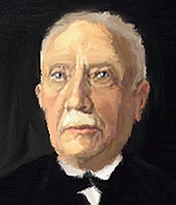|
Xtend
 Listen
Listen
 Period
Period
 Country
Country
 Quotation
Quotation
 Projects
Projects
 Dictionary
Dictionary
 Finders
Finders
|
Born: 11 June 1864, München,
Germany
Died: 8 September 1949,
Garmisch-Partenkirchen, Germany
 Strauss,
Richard Strauss,
Richard
The composer viewed as Wagner's successor and the last Romanticist
successor and the last Romanticist ,
was the son of a horn player in the Munich orchestra,
who dedicated his son to music from an early age, and acquired for him
excellent musical education. Like Mahler ,
was the son of a horn player in the Munich orchestra,
who dedicated his son to music from an early age, and acquired for him
excellent musical education. Like Mahler ,
his colleague and good friend, Strauss also made
his living by orchestra conducting most of his life, and composed in his
free time, under a clear influence of Liszt ,
his colleague and good friend, Strauss also made
his living by orchestra conducting most of his life, and composed in his
free time, under a clear influence of Liszt and Wagner
and Wagner .
This influence is especially prominent in the sensational, controversial
opera .
This influence is especially prominent in the sensational, controversial
opera "Salome", and the symphonic
poems
"Salome", and the symphonic
poems "Don Juan", "Thus
Spoke Zarathustra"
"Don Juan", "Thus
Spoke Zarathustra"  ("Also sprach Zarathustra") and "Till
Eulenspiegel", in which he brought, within the Romantic tradition
of programme music, plus additional bold elements of his own, the symphonic
poem, to an unrivalled level of expressiveness. His opera "Elektra"
also represents his early tendency towards weird and horrifying topics.
("Also sprach Zarathustra") and "Till
Eulenspiegel", in which he brought, within the Romantic tradition
of programme music, plus additional bold elements of his own, the symphonic
poem, to an unrivalled level of expressiveness. His opera "Elektra"
also represents his early tendency towards weird and horrifying topics.
During the reign of the Nazi regime,
Strauss was appointed "the head of the Third Reich's musical department",
and wrote music for official Nazi occasions, although opinions are split
as to his motives. After the war and while being investigated by the "Committee
for Investigation of Nazi Crimes", he wrote "Metamorphosis"
("Metamorphosen"), expressing longing for
times that will never return. Although his past was somehow ambiguous,
it caused him to move to Switzerland until
the last year of his life, when he returned to die in Germany . .
Before his death, Strauss composed a few German Lieder in the Last Four Songs ("Vier
letzte Lieder") for soprano and
orchestra.
in the Last Four Songs ("Vier
letzte Lieder") for soprano and
orchestra.


Richard Strauss on the WWW
 Sites
Sites
|
 Audio
Audio
|
 Video
Video
|
 Images
Images
|
 MIDI
MIDI
|
|
Description
He Was

and played

He Lived in the
 Twentieth Century
Twentieth Century
In
 Germany
Germany
|